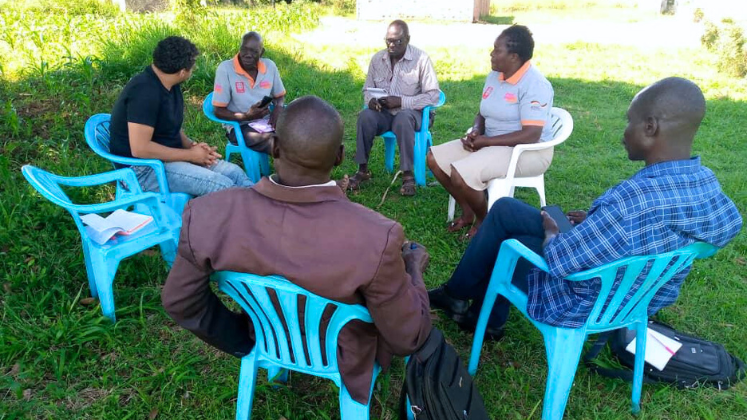Early career researchers (ECRs) are the largest community of researchers but despite this we know little about their scholarly attitudes and behaviours. Reporting the first-year findings of a longitudinal study of an international panel of ECRs, Dave Nicholas reveals that many remain conservative in their scholarly attitudes and practices. ECRs are concerned by “risky” open peer review, regard archiving their work in repositories as a non-priority, and display little interest in open science or altmetrics. Many ECRs see opportunities for change, but do not feel able to grasp them as they are shackled to a reputational system that promotes publication record and citation scores above all else.
Early career researchers (ECRs) are of great interest to the scholarly community because they are the new wave, with many born digital, but also because they are the biggest wave – they are the largest community of researchers by far. If any group merits long and detailed study it’s this one, but surprisingly we know little about their scholarly attitudes and behaviour and whether they constitute the harbingers of change. To right this wrong the Publishing Research Consortium commissioned CIBER to conduct a three-year longitudinal study, which follows an international panel of ECRs. We report here on the first-year findings concerning 116 science and social science ECRs, who between them have published nearly 1200 papers and come from China, France, Malaysia, Poland, Spain, the UK and the US. As the topic is too wide, complex and nuanced for a questionnaire – and because of the need to build a relationship that would last the duration of the project – ECRs were interviewed in their own languages and by local researchers who understood the national context, face-to-face, by Skype or telephone, with a structured schedule consisting of 60 questions.
 Image credit: lego line up by frankieleon. This work is licensed under a CC BY 2.0 license.
Image credit: lego line up by frankieleon. This work is licensed under a CC BY 2.0 license.
The first year of the project established what existing scholarly attitudes and behaviour are and the following two years will establish whether these attitudes/behaviours are changing. More details of the project can be found on the CIBER website.
Selected findings
Paper-driven behaviour
The four functions of Oldenburg’s journal – registration of new research, dissemination, peer review and archival record – are so fundamental to empirical scholarship that nearly all journals published in these digital times conform to Oldenburg’s model and the new wave of researchers are, if anything, more fixated by them than their senior colleagues. ECRs dance to the same reputational tune as researchers have done for a very long time.
ECRs are more productive than is often assumed, having published around ten papers each (double that if conference proceedings and book chapters are included) and are focused on publishing in highly ranked, Impact Factor journals. Publishing outlets in a number of countries are very prescribed, with ECRs having to publish in lists of acceptable journals. In most cases it is a proprietary list (normally Web of Science), but sometimes it is a government list, as in Poland.
For ECRs, to be first-named author is, on the whole, not that difficult and they are typically first-named author on somewhere between a third and half of all the papers to which they contribute. Where to publish is generally a group decision and ECRs do have an influence, considerably so according to ECRs in the UK and the US. If the research cannot be published in top journals other criteria are employed, including submitting to journals: a) where the chances of acceptance are higher; b) where they have had good experiences in the past; c) which provide a rapid turnaround, referred to as “quick journals”; and d) that are thorough and efficient (and give lots of helpful feedback).
Peer review
A surprisingly high proportion (around half) of ECRs are reviewers, which partly explains why there is little evidence to support the belief that the existing peer review system is “a closed shop”, from which young researchers are locked out. They like double-blind review because of the anonymity afforded, but are concerned about open peer review, which they thought “risky”, “dangerous” and liable to make it more difficult to reject papers. There was a sense that opening the door to all meant anything could happen.
Social media and online communities
There are patches of social media and online community use among ECRs and these patches are bigger than has been witnessed in previous investigations. Finding information, communicating information, sharing, building a digital profile/presence, obtaining PDFs and engaging in outreach activities are the main uses for these platforms. This constitutes quite a long scholarly list, but active collaboration is a notable absentee. ResearchGate (the fastest grower in the field), LinkedIn and Twitter are the tools of choice. Social media have a firm foothold, especially in China and Malaysia.
Open access
Gold open access is universally thought to be a good thing, but ECRs are aware of the problems associated with OA journals. OA, however, is not really a big issue, although there is some disquiet regarding author charges, which are thought to be too high and unfair as they are making the playing field uneven between those researchers that can pay for it and those that cannot. There is a lot less distrust of OA than encountered in our earlier studies, but few people are queuing to get published in OA journals. Somewhat surprisingly, for ECRs might be thought to be interested in taking every opportunity to showcase their achievements, they regard archiving their research work in repositories as a non-priority. It is undertaken when obligatory, but without much enthusiasm.
Open science
There is much talk about the “open” agenda. However, ECRs displayed little understanding of, or interest in, open science and its technologies as possible agents of scholarly change. Indeed, French researchers are antagonistic to the concept, seeing it as a further restraint on their scholarly freedoms. Generally, ECRs are not so interested in sharing data because many want to exploit the data they have gathered to the full (for their publications) and not give it away. The open agenda includes blogs as non-traditional scholarly outputs, but no ECRs were really interested in blogs as an alternative to publications.
Sharing and collaboration
While a large majority of ECRs share ideas and interim data, much of this takes place at research group level, at internal meetings and within local networks. While sharing is much mentioned by ECRs as central to the way they want to run their scholarly lives, this is generally not done using social media. Sharing research outputs, “after publication”, via ResearchGate in particular, is a different case and is a popular activity. Collaboration is a weightier issue and the key hypothesis tested was whether ECRs share and collaborate extensively at the risk of losing their competitive edge. In fact, it was only in France that the hypothesis was fully supported. For French ECRs, collaboration is clearly king. French ECRs’ strategies for getting a job and publishing more and better papers rely on collaboration. Conferences and meetings are key moments, dedicated to searching for collaborations. ECRs believe they can be hired based on their CVs, but also for the potential of their collaborations.
Metrics
Despite the importance accorded to metrics, as a (future) fundamental element of reputational assessments, ECRs demonstrate little interest in altmetrics. This is only to be expected, of course, for altmetrics are not widely used and accepted by either researchers or the university system. However, some ECRs, but not in the UK/US, agree that it is a potential new method to evaluate researchers’ output and influence.
Transformations and transitions
Independent of discipline or nationality, the results show the tensions that occur in a world in transition. In this transition, there are signs that scholarly “things” (practices, behaviours, objectives) are moving in many directions while the formal frame of evaluation and competition is strengthening. ECRs see the opportunities to change, but do not take them because they do not have the time and space in such an insecure and busy environment. They also have limited opportunity to change as they are shackled to a reputational system that promotes, above all else, publication record and citation scores. Nevertheless, we have moved on from the situation found in earlier research where no one had any ideas at all about change, never mind transformation, and those who disliked the present situation just railed against it. We do find ideas for change and even some for transformation, mainly moving away from the current preoccupation with papers.
This blog post is based on the author’s co-written article, “Early career researchers: Scholarly behaviour and the prospect of change”, published in Learned Publishing (DOI: 10.1002/leap.1098).
Note: This article gives the views of the author, and not the position of the LSE Impact Blog, nor of the London School of Economics. Please review our comments policy if you have any concerns on posting a comment below.
Other members of the Harbingers research group contributed to this blog: Anthony Watkinson, Abrizah Abdullah, Chérifa Boukacem-Zeghmouri, Blanca Rodríguez Bravo, Marzena Świgoń, Jie Xu and Eti Herman.








Thank you Dave for these very thoughtful observations.
Indeed we are going through a period of transition, which always brings new opportunities for improvement. Perhaps you will find interesting my conceptual approach that tries to set a framework to better understand the fundamental problem in question that we are called to address, not only for ECRs but for humanity in general:
http://blog.euroscientist.com/open-scientists-in-the-shoes-of-frustrated-academics-part-i-open-minded-scepticism/
No cenário, Simão (2005) afirma que as condições sociais contudo econômicas similarmente ileso condições
dentre ameaça destinado a a HA. http://www.dicasbcb.com.br